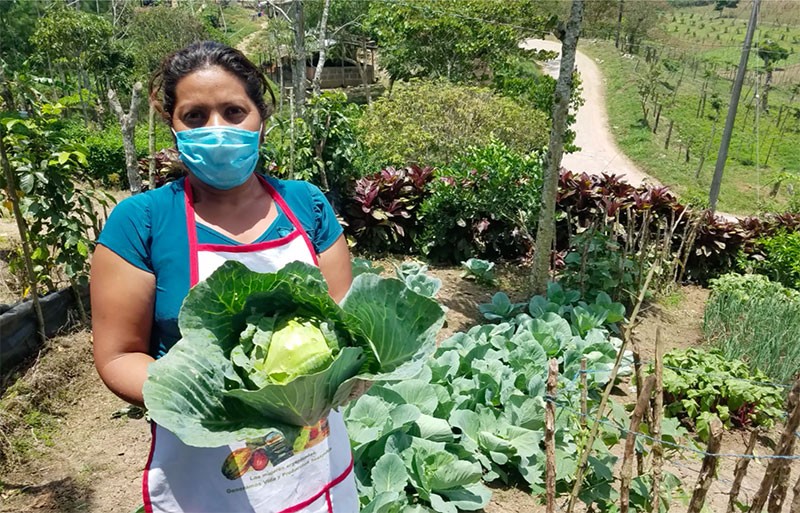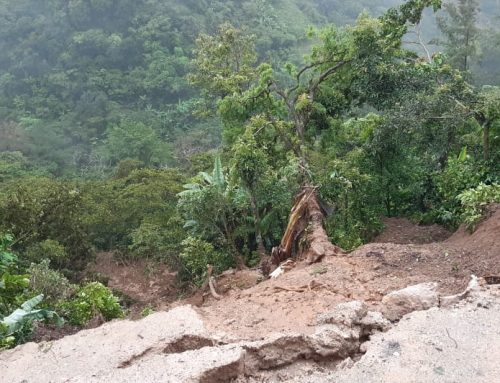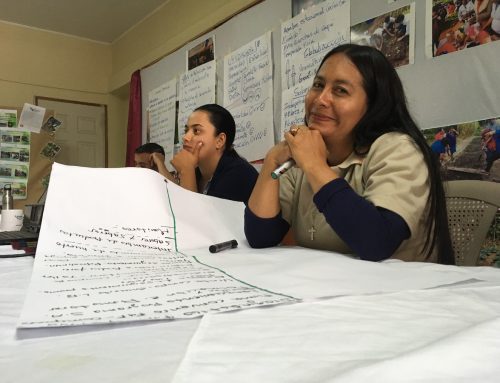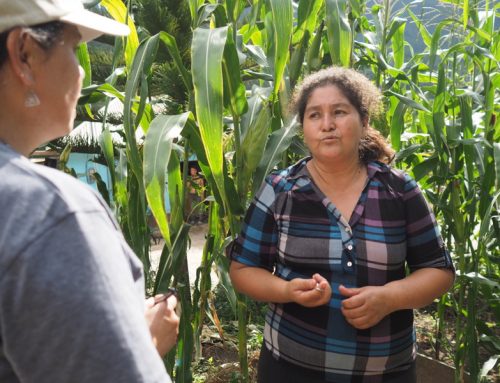In the two months since our previous update, the impacts of COVID-19 have become more evident in the countries where we work. Across Latin America, concerns are growing about the pandemic’s effects on rural communities, where reliable and effective health services are largely unavailable. We will continue to monitor the situation and will update this post with new information as we receive it.
Though the pandemic is primarily a public health emergency, its effects are ripping through all aspects of life – especially food security. A recent report from the World Food Programme (WFP) projects that the number of people suffering from acute hunger around the world could double in 2020.
The WFP’s report highlighted Guatemala as one of the most affected countries in Central America. COVID-19 may further exacerbate social inequality, climate change, and poverty that have placed nearly 18% of the population in a food crisis.
It has also exposed flaws in a global food system over reliant on centralized, large-scale production and struggles with the consolidation of supply chains — and highlights the importance of our work with coffee-farming families. Our focus on strategies that promote local food production is helping families weather crises like COVID-19 while improving their resilience and health.
We’re committed to delivering crucial food security support and services to our coffee cooperative partners and the 8,0000 families they represent in Mexico, Guatemala, Nicaragua and Colombia. Your support can help us continue this important work. Please donate now.
To see ongoing updates from our partners, please bookmark this post.
June Partner Updates
SOPPEXCCA

The situation has changed significantly for women in our farmers market program at SOPPEXCCA. Twelve deaths from COVID-19 were traced to the municipal market near SOPPEXCCA’s offices and the women’s market. Co-op management immediately closed their offices and the market for at least two weeks.
Women in the program are actively managing their home gardens, providing fresh food for their families, and selling produce in their individual communities. Some are sharing their expertise with the 4 schools in our school garden program, jointly managed with SOPPEXCCA.
Co-op food security promoters continue to offer support and training, and they’re seeing results as women invest more time in their gardens. They all see the importance of producing their own food.
Fatima Ismael, the general manager of SOPPEXCCA, told us:
“It has been a very tense time. We have seen an increase in cases in Jinotega. We know of at least two co-op members or family of members who have been infected. There is a lot of fear as many people who migrate for work in Costa Rica have come back to their communities and are suspected of being infected.
“On top of that, there is limited guidance from the government, and people are seeking information from a variety of sources, some of them completely bogus or sensationalist. The lack of leadership is causing confusion and fear. Crime is also spiking as jobs and remittances decrease, creating an atmosphere of uncertainty and insecurity.
“Our priority right now is to secure basic food and inputs for farmers so they can adequately prepare for the next coffee season and care for their families.”
Read more about our work with SOPPEXCCA.
ACODIHUE
Guatemala has taken strong measures to contain and mitigate the effects of the pandemic, but most rural communities are struggling. Families at ACODIHUE in northwestern Guatemala have seen a large increase in the price of food staples and have reduced their daily rations. The high unemployment rate continues to rise, with few options for income. There is also widespread fear of returning deportees from the US and Canada, some of whom have been diagnosed with COVID-19.

Coffee farmers here have been unable to buy the inputs they need for to adequately maintain their coffee plots, which will affect the next harvest and result in even lower income. ACODIHUE beekeepers report that the rise in food prices has made it difficult to buy sugar to feed their bees during the rainy season.
In response, ACODIHUE is checking in with members more frequently, through phone calls and a WhatsApp group, to support and encourage them to continue their work with coffee and beekeeping. The co-op partnered with two coffee buyers to pack and distribute 1,300 food packages with basic staples and honey from co-op members. We’re working with ACODIHUE to ensure our food security program remains active throughout 2020, and we’ll be shifting resources to help families meet their food needs through training and materials for home gardens.
Read more about our work with ACODIHUE.
Maya Ixil
Young promoters at Maya Ixil are using their new skills, developed at our workshops, to pivot from building hives and making protective beekeeping clothing, to now making masks and other PPE. These are being distributed among co-op members and shared with people in this small community.
Maya Ixil recently finished their honey harvest, and the co-op has started a nursery for pollinator-friendly plants to distribute to beekeepers.
We recently moved all management training online, in lieu of in-person visits. Even with spotty internet, this approach is proving effective for program management and training, especially on topics like impact monitoring and financial management.
Read more about our work with Maya Ixil.
COMEPCAFE
While parts of Colombia have started to open up, rural communities continue to experience lockdowns to curb the spread of the virus. This has made home gardens even more valuable for COMEPCAFE families. They’re producing large volumes of vegetables, helping them weather the crisis. They’ve also started saving and buying their own seeds, as families see the value of their gardens and are actively investing in them.
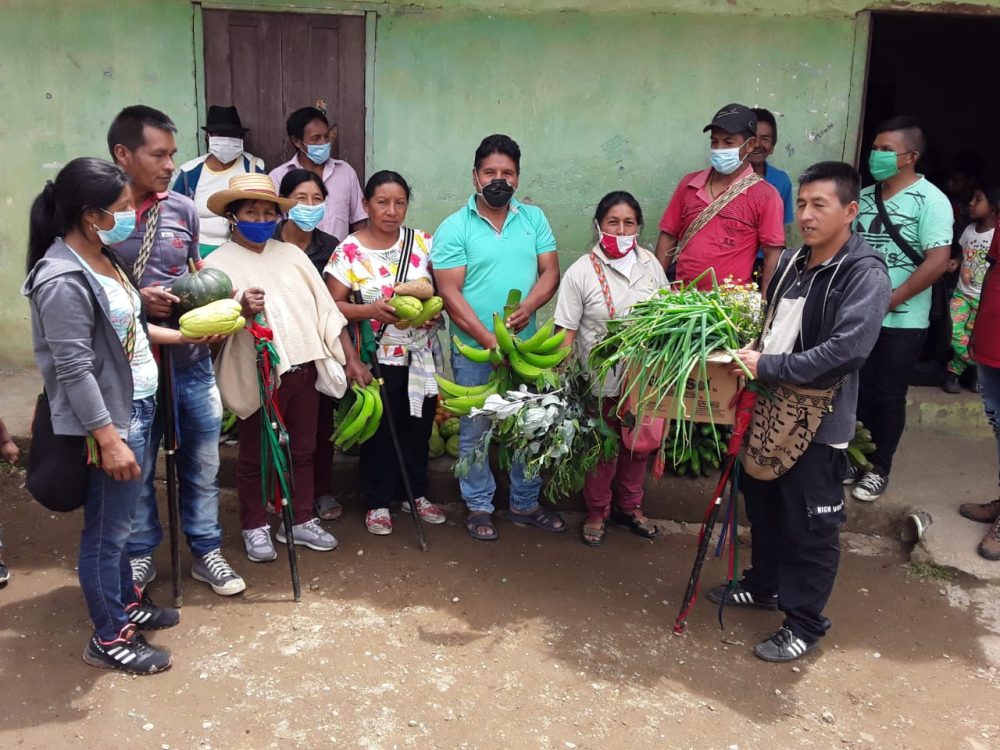
Home gardens have been so successful that COMEPCAFE families are donating vegetables to people in need in the city of Popayan, where COVID-19 has caused rampant unemployment.
Read more about our work with COMEPCAFE.
Nuevo Futuro
Nuevo Futuro tells us their member-families are healthy, and doing their best to cope with regulations and lockdowns. Their home gardens are an important lifeline, delivering harvests of onions, swiss chard, green beans, cucumbers, and spinach. Now, families are eagerly awaiting the corn harvest. Though their food supply is stable at the moment, many remain worried about rising prices.
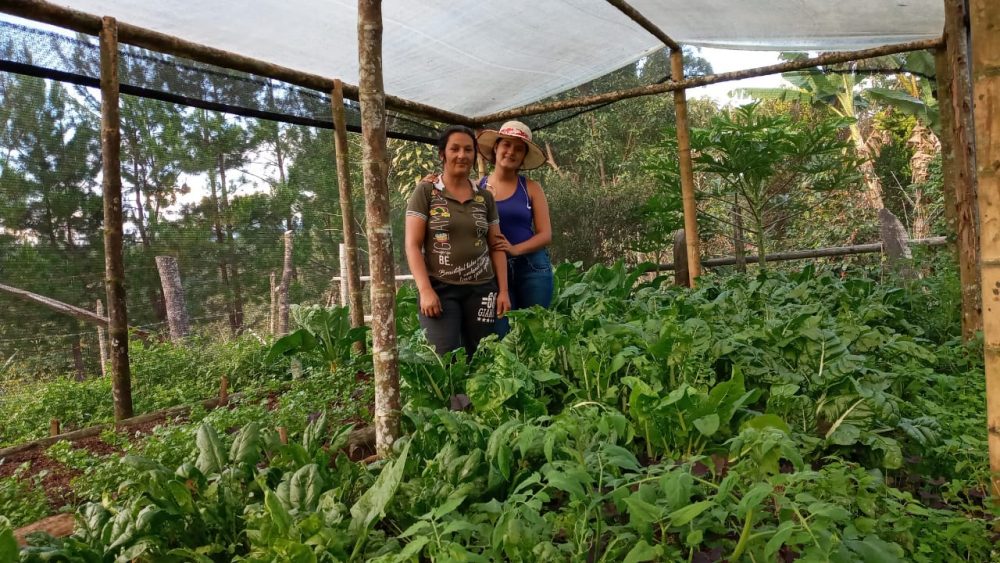
We’re working with Nuevo Futuro to eventually shift the organization’s approach to home gardens by organizing new community gardens, managed by local member-boards, once the pandemic subsides. They plan to establish four or five gardens to support 80 more families, joining the 49 families who already have gardens.
Read more about our work with Nuevo Futuro.
CESMACH
CESMACH had seen little impact from the pandemic until the recent death of three people in Jaltenango. Now, the local bank has closed, people are limiting travel to avoid contamination, and are finally using masks. Our beekeeping group here has faced delays in their honey harvest, and has had to spend additional funds to transport their honey to the co-op to be stored. We’re continuing our work with the CESMACH team – albeit remotely – to explore new markets for their honey and improve their processes.
Read more about our work with CESMACH.
April Partner Updates
Women’s Organic Market Continues Serving Community
Our two projects with SOPPEXCCA, a cooperative in Jinotega, Nicaragua include a women-led organic market, and school gardens serving 500 students and families. As prices rise and food becomes scarce, our food security programs are now critical lifelines for children, farming families, and the 130,000 residents of Jinotega.
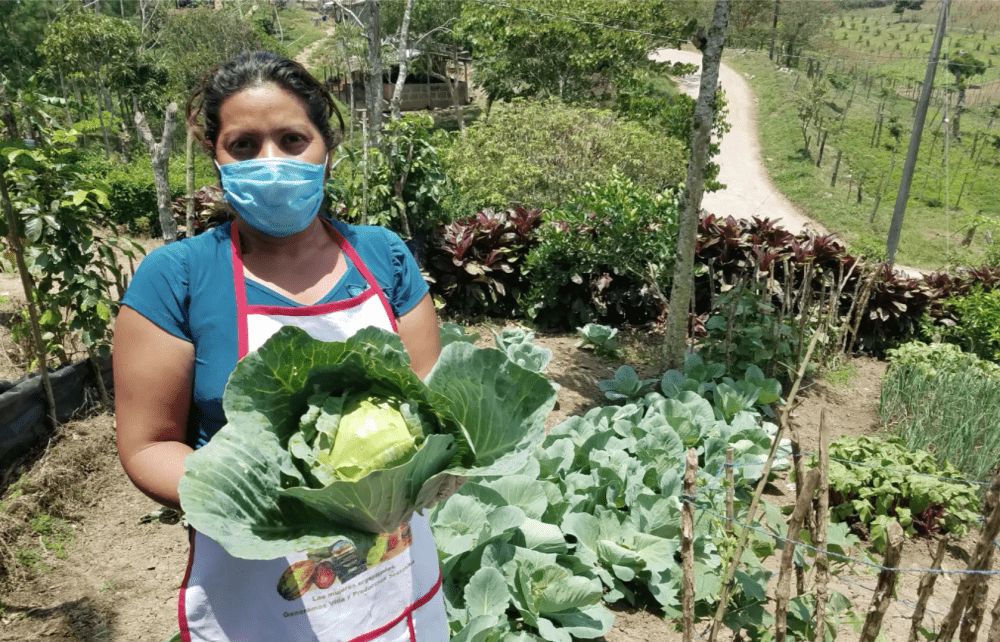
SOPPEXCCA sent this update:
“Women participating in the Mercadito are taking steps to ensure safety, health and hygiene. They’re using masks and gloves, and practicing social distancing with customers. While some are anxious about the virus, they continue to sell their produce because the income is so important to them.
“The market remains busy; in fact, it has sold out more quickly than usual. We are looking into how to offer pre-orders and send produce by bus. The women are also adding tamales to the products on offer during the Easter holiday season.
“Training activities will be delayed, but the gardens remain active and are providing food for families. We’re sending seeds and fertilizer to participants by bus, and our young promoters in communities are distributing them to the women.
Our school garden program with SOPPEXCCA is also beginning to see impacts from the pandemic:
“Families are hopeful that schools will stay open, as many depend on the schools to feed their children, and the school gardens supply high quality lunches and healthy snacks for 500 students. Food prices are now rising, especially for staples like rice, corn and beans.”
New Challenges for Beekeepers in Guatemala
A lockdown in Guatemala is causing problems for the beekeeping coffee farmers we work with there. Restrictions on movement make it difficult for them to collect and bring their coffee to market, and new bureaucratic hurdles are complicating the honey harvest.
Our partner ACODIHUE, a cooperative representing 5,500 families in Huehuetenango, has been working hard to support beekeepers there. Because of travel restrictions, beekeeping coordinator Luis Jimenez has been unable to visit apiaries at this key moment in the harvest cycle. Felix Camposeco, the co-op’s coffee buyer, is working with Luis to try and ease restrictions, and ensure that the honey can be harvested in time.
ACODIHUE sent this update:
“The pandemic is seriously impacting our food security program. Collection of honey was supposed to begin in March, but the Guatemalan government ordered a cessation of activities and restricted all unnecessary movement. Communities panicked and set up roadblocks.
“These restrictions were revised on April 12, and after speaking with authorities, we were given permission to collect coffee, but not honey, which needs to be harvested. We have asked the authorities to allow us to do so. But until then, everything’s on hold.
“Many participants are frightened, with some abandoning their apiaries completely. Luis is encouraging beekeepers to stay put and delay their harvest for a few weeks. But time is of the essence as the rainy season begins in May, which can negatively affect honey quality. The scenario is bleak, but we are hopeful that wq will be able to collect the honey, as well as all the coffee.”
Communities on Hold in Colombia
COMEPCAFE is a cooperative of 1,400 indigenous small-scale coffee-farming families in Cauca, Colombia. Dora Lopez, COMEPCAFE’s Food Security Coordinator, tells us: “The situation is very worrisome, we never imagined this! Everything is paralyzed and the government has imposed a process where people can only leave home on certain days based on their identification numbers.”
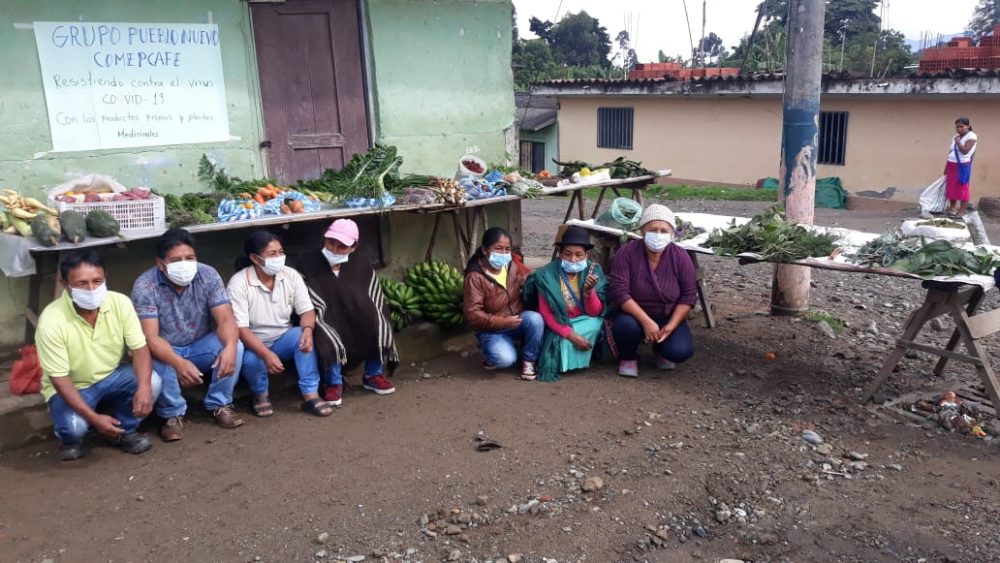
Dora reports that public transportation has been suspended and community leaders have set up roadblocks that only allow food trucks and ambulances through. The coffee harvest is just beginning, and though their high-quality specialty coffee won’t be harvested until May, their lower quality commercial coffee harvest for local and national markets begins earlier. They’re very concerned about their ability to collect and transport the coffee to their storage facility. The co-op is currently negotiating with local authorities to try and ease restrictions.
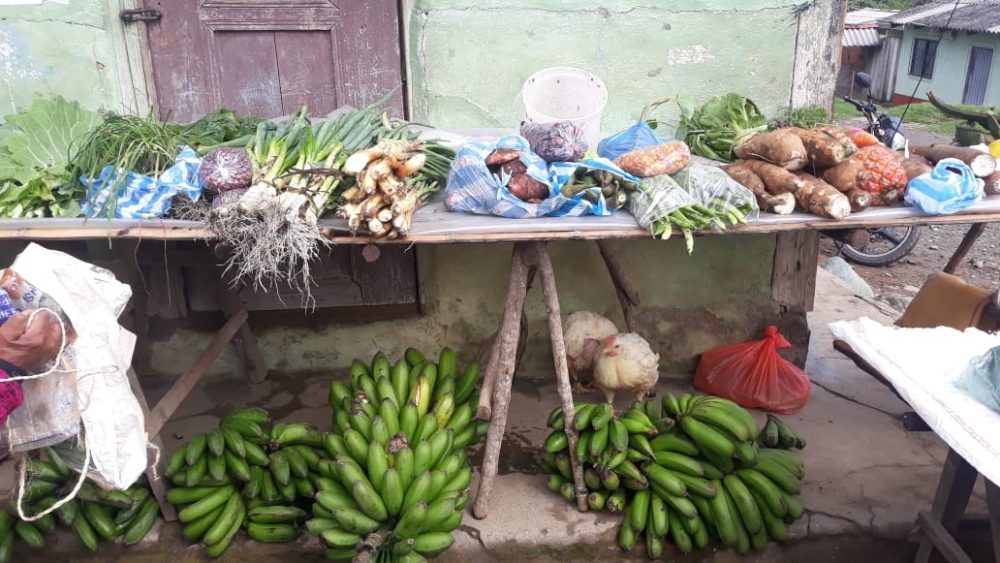
Our food security programs have also been affected by the lockdown. Every year, the co-op’s Food Security and Food Sovereignty Producer Exchange brings together all members, and features native and seasonal seeds, as well as produce from member farms. After restrictions for COVID-19 were put in place, these families were suddenly cut off from local food markets and the Exchange was canceled. Many families lost access to their regular staples, as supplies dwindled and food prices increased dramatically.
Fortunately, the 150 families in Caldono participating in our food security program had been busy preparing for the Exchange by growing extra food to sell and share. This has allowed them to feed their families, while continuing to barter and sell food. “It’s been a lifesaver!” said community promoter Rosa Marin. The families recently sent us a message of gratitude for the encouragement to grow their own food, and for the training, support and materials they’ve received.
Seeds have recently been distributed – enough for the upcoming growing cycle – and COMEPCAFE is confident that food grown in their home gardens will be enough to get families through the next few months.
In the community of Morales, the 100 families participating in our food security program have made great advances over the past five years. The community promoters and families have established home gardens which are thriving, and they now have stable access to healthy, fresh food every day. COMEPCAFE has taken over management of the program, and plans to establish home gardens for 50 more families in 2020.
COVID-19 has affected the ability of COMEPCAFE families to access seeds for future plantings. Though they’ve had great success reintroducing native varieties of maize and beans, other seeds are harder to save. The cooperative is urging local authorities to allow the distribution of seeds as an essential service.
A Challenging Coffee Harvest Commences in Colombia
The coffee harvest has started in the communities served by our partner Asociación Nuevo Futuro. This collective of 200 small-scale farmers is working with local authorities to get permission to transport coffee and allow coffee pickers to enter and work on farms. Some farmers use paid workers, but the majority depend on a local system they call “lending hands,” or exchanging labor among neighboring farming families to save money. This important resource is now threatened because of widespread fear of COVID-19. Nuevo Futuro is developing guidelines for their members to comply with social distancing, so families can work together safely.
The food supply for the 49 families participating in our food security program is stable, but prices have risen sharply. These families are using their now-critical home gardens to feed themselves and share produce with friends and neighbors. However, the situation in the larger community is worsening here, as people with available cash are hoarding supplies, leaving other families to struggle with food scarcity. Nuevo Futuro plans to add another 50 families to the home garden program in 2020, to bolster resilience and improve food security.

